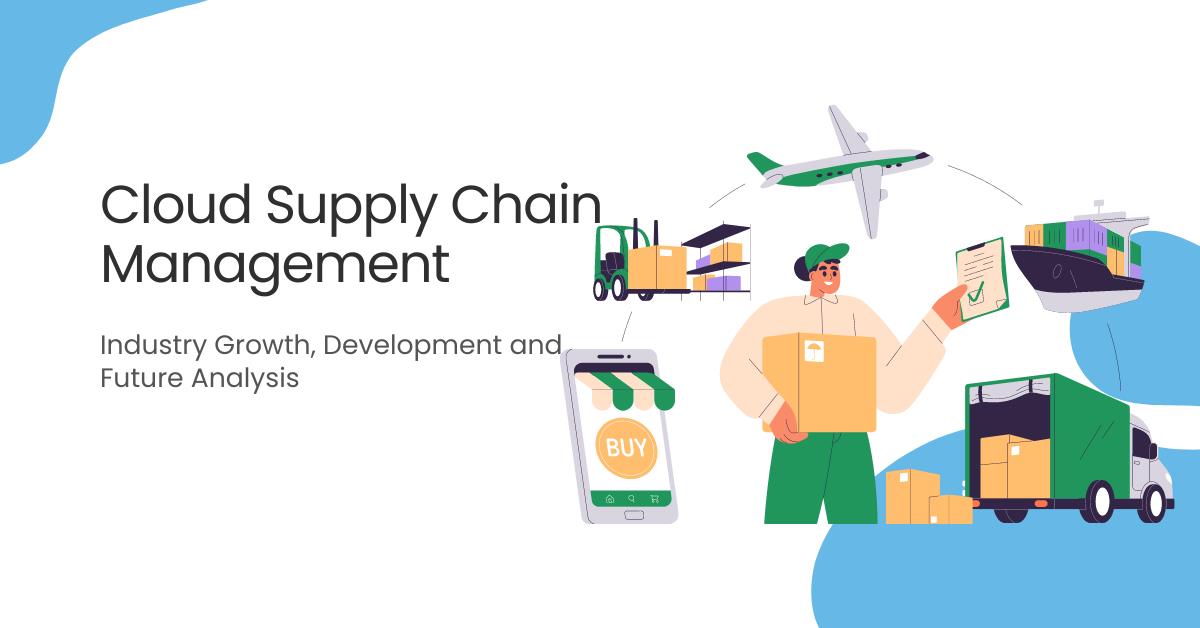
403
Sorry!!
Error! We're sorry, but the page you were looking for doesn't exist.
The Rise of Hybrid Clouds in Supply Chain Management
(MENAFN- P&S Intelligence) The global market for cloud supply chain management (SCM) was valued at approximately USD 10.8 billion in 2023 and is anticipated to expand to about USD 37.6 billion by 2030. This growth, at a compound annual growth rate (CAGR) of 19.7% from 2024 to 2030, is driven by the increasing adoption of cloud technologies, the demand for greater agility and flexibility, the expansion of e-commerce and omnichannel retailing, and the need for data-driven decision-making.
Rising Adoption of Cloud Technologies: Cloud adoption is rapidly increasing across various sectors, including SCM. Businesses are attracted to the advantages of cloud-based solutions, such as reduced IT burdens and enhanced security.
E-Commerce and Omnichannel Growth: The rise in e-commerce and omnichannel retailing is heightening the need for integrated and efficient supply chains. Cloud SCM solutions aid businesses in managing complex order fulfillment processes and ensuring a smooth customer experience.
Hybrid Cloud Solutions: Many companies are opting for hybrid cloud infrastructures, which combine on-premise systems with the flexibility of public clouds. This hybrid approach provides data security and control while mitigating privacy risks.
Impact of AI and ML: The integration of artificial intelligence (AI) and machine learning (ML) in SCM is transforming the industry. AI and ML technologies enhance task automation, reduce logistics costs, and improve demand forecasting, contributing to greater supply chain efficiency and cost reduction.
Hybrid Cloud Dominance: The hybrid cloud model is a major revenue driver in the market. It merges the benefits of on-premise infrastructure with public cloud flexibility, advancing SCM processes. A 2022 study indicated that 82% of IT leaders have adopted hybrid cloud solutions.
North American Market Leadership: North America, particularly the USA, holds the largest market share due to its diverse transportation options and interconnected systems. The region is expected to see significant growth, driven by increased recognition of GS1 (Global Standards 1) and a variety of logistics services including supply chain monitoring, material handling, packaging, warehousing, reverse logistics, brokerage, and freight forwarding.
Rising Adoption of Cloud Technologies: Cloud adoption is rapidly increasing across various sectors, including SCM. Businesses are attracted to the advantages of cloud-based solutions, such as reduced IT burdens and enhanced security.
E-Commerce and Omnichannel Growth: The rise in e-commerce and omnichannel retailing is heightening the need for integrated and efficient supply chains. Cloud SCM solutions aid businesses in managing complex order fulfillment processes and ensuring a smooth customer experience.
Hybrid Cloud Solutions: Many companies are opting for hybrid cloud infrastructures, which combine on-premise systems with the flexibility of public clouds. This hybrid approach provides data security and control while mitigating privacy risks.
Impact of AI and ML: The integration of artificial intelligence (AI) and machine learning (ML) in SCM is transforming the industry. AI and ML technologies enhance task automation, reduce logistics costs, and improve demand forecasting, contributing to greater supply chain efficiency and cost reduction.
Hybrid Cloud Dominance: The hybrid cloud model is a major revenue driver in the market. It merges the benefits of on-premise infrastructure with public cloud flexibility, advancing SCM processes. A 2022 study indicated that 82% of IT leaders have adopted hybrid cloud solutions.
North American Market Leadership: North America, particularly the USA, holds the largest market share due to its diverse transportation options and interconnected systems. The region is expected to see significant growth, driven by increased recognition of GS1 (Global Standards 1) and a variety of logistics services including supply chain monitoring, material handling, packaging, warehousing, reverse logistics, brokerage, and freight forwarding.

Legal Disclaimer:
MENAFN provides the
information “as is” without warranty of any kind. We do not accept
any responsibility or liability for the accuracy, content, images,
videos, licenses, completeness, legality, or reliability of the information
contained in this article. If you have any complaints or copyright
issues related to this article, kindly contact the provider above.


















Comments
No comment